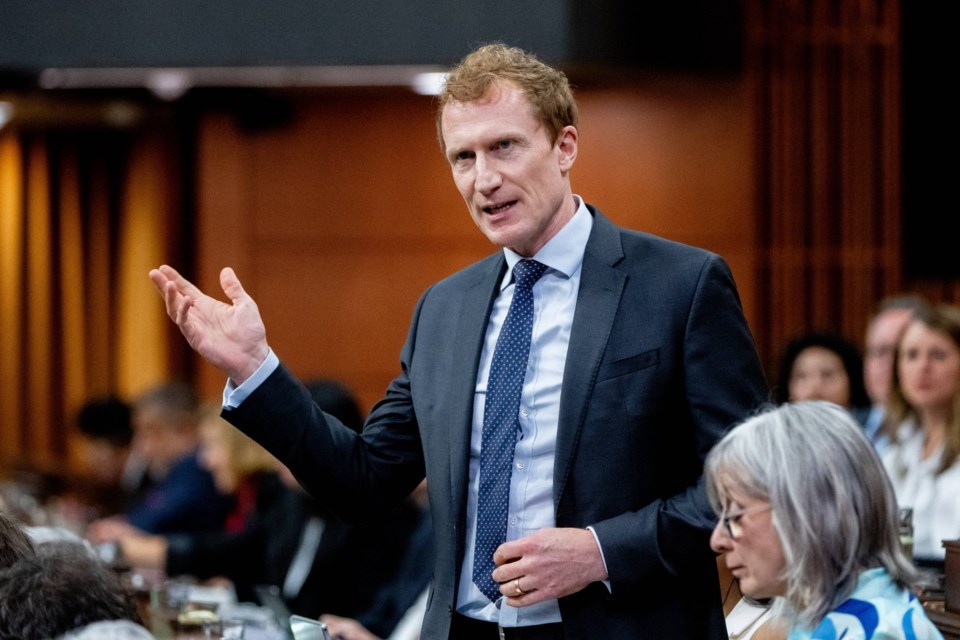OTTAWA — British Columbia needs to step up and take on more asylum seekers who come to Canada, the federal immigration minister said Tuesday in response to criticism from the B.C. premier about funding for immigration settlement.
David Eby said Monday that B.C. and other Western provinces should get a share of the $750-million deal Ottawa recently struck with Quebec to help pay for settlement services.
He said he's frustrated to see Quebec and Ontario "showered" with federal cash to help cope with an influx of asylum seekers and temporary residents.
"I think perhaps there was some confusion on the premier's behalf as to what this money was for. The suggestion was it was for temporary residents. That is absolutely not the case," Immigration Minister Marc Miller said Tuesday.
He said the deal he struck with Quebec was to compensate that province for two years of high costs associated with the disproportionate number of asylum claimants who have arrived there. Quebec initially asked for $1 billion from Ottawa to cover the costs.
Government statistics show 65 per cent of asylum claimants arrived in Quebec last year, compared to just under two per cent in B.C.
"We need provinces like British Columbia to step up when it comes to actually apportioning asylum seekers," Miller said.
"It doesn't come without financial support from the federal government."
Miller said B.C. hasn't applied for any funds from a program to help asylum seekers access interim housing since 2019, "simply because the flows are off."
There are 10,000 people coming to British Columbia every 37 days, Eby said Monday. Refugees have to stay in homeless shelters and international students don't have support, he said.
Eby said Canadians are seeing resources go to Ontario and Quebec "at the expense, in my opinion, of the West."
He made the comments at a news conference after meeting with other Western premiers Monday, where he called for the funding to be divided on a per-capita basis.
The funding agreement with Quebec, "frankly, is the straw that broke this camel's back," he said.
Miller said he's open to speaking with the premier about the effects of immigration growth on B.C., but says those costs shouldn't be confused with the cost of asylum services for those who arrive without resources.
Most people who arrive in B.C. come under economic programs and contribute to the province's capital by paying taxes, he said.
Eby did not immediately respond to a request for comment Tuesday.
Alberta Premier Danielle Smith also raised the cost of settling newcomers at the Western Premiers' Conference Monday.
"We certainly want to keep the doors open in Alberta. We want to make sure that we are properly supporting the people coming to our province," she said in a post on X on Tuesday calling for funds from Ottawa.
Several cabinet ministers who represent Quebec ridings agreed Tuesday that their government should discuss any growing pains B.C. is experiencing as a result of immigration, but said Quebec should be compensated for taking on such a large share of asylum seekers.
"I have tremendous respect for Mr. Eby. The government of B.C. is a great ally of us," Environment Minister Steven Guilbeault said on his way into a cabinet meeting Tuesday.
"I will be happy to talk to my colleagues to make sure that we have a conversation with this government as soon as possible."
This report by The Canadian Press was first published June 11, 2024.
Laura Osman, The Canadian Press



